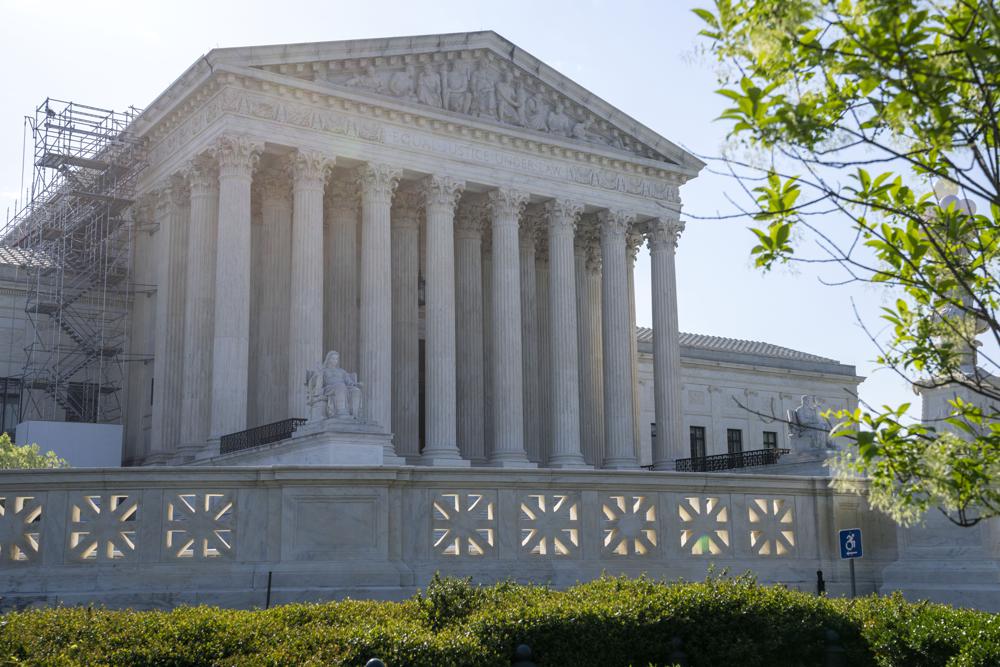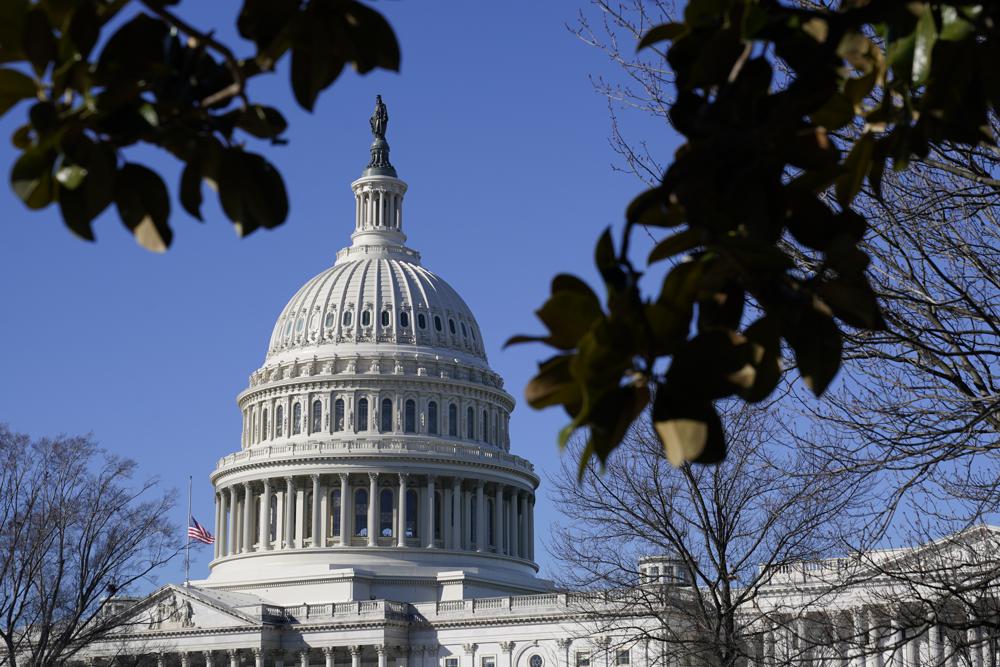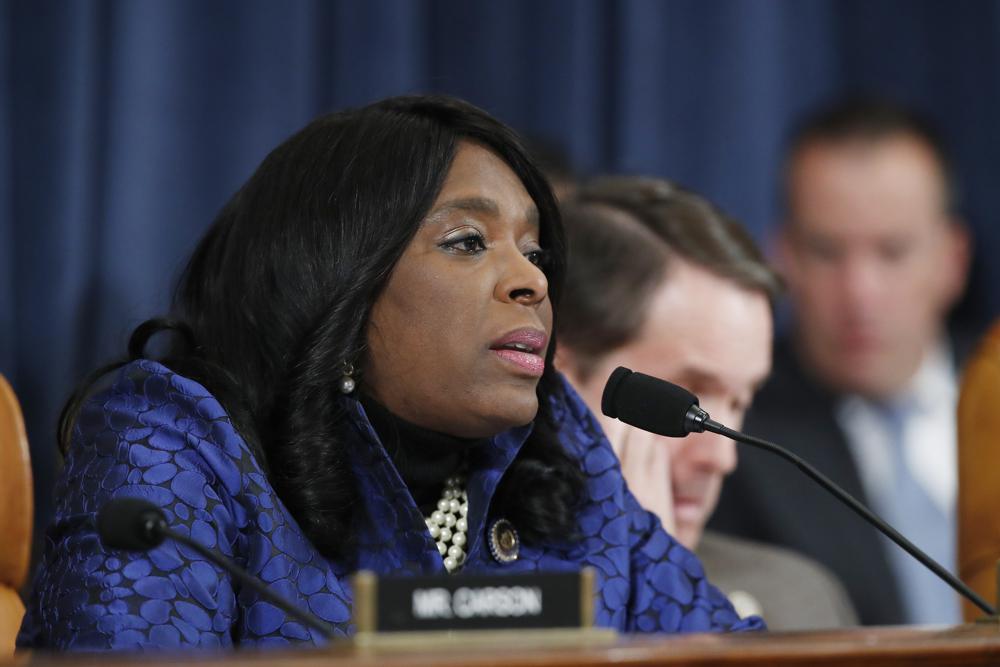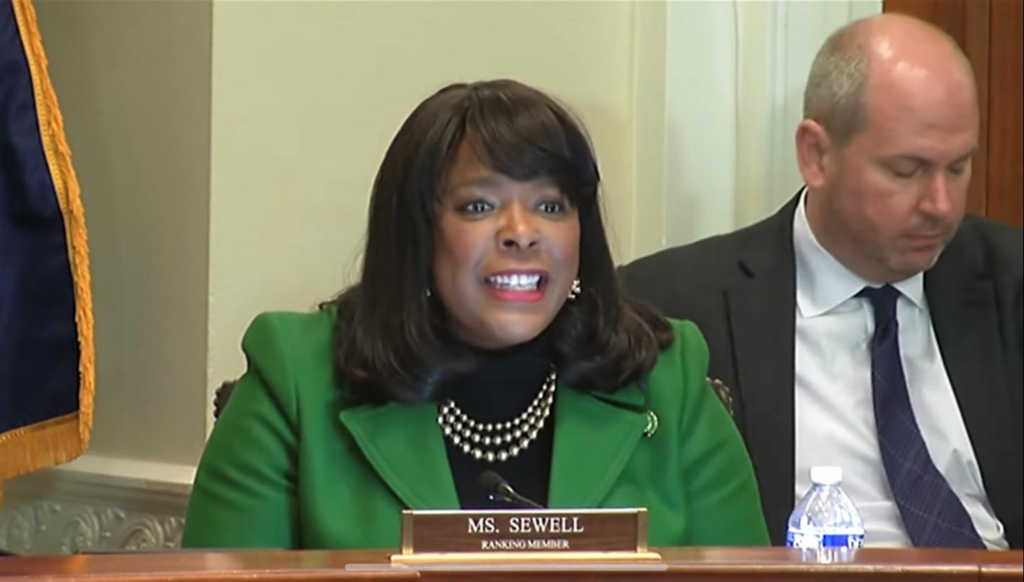Supreme Court voting rights ruling stuns minority voters, who hope it expands their representation

This week’s Supreme Court decision ordering Alabama to redraw its congressional districts was seen by many minority lawmakers and voting rights activists as a stunning victory with the potential to become a major stepping stone for undoing political maps that dilute the strength of communities of color. Hank Sanders, a former Alabama state lawmaker who has long been politically active in the state, knew there would be a decision since the court heard arguments in the case last fall. He was not anticipating being happy with the outcome, given that previous rulings of the conservative-leaning court had essentially gutted some of its most important provisions. “I was afraid they were going to go ahead and wipe out section 2,” he said, referring to the part of the Voting Rights Act at stake in the Alabama case. He was at his law office Thursday in Selma, scene of one of the most pivotal moments in the Civil Rights Movement, when news of the 5-4 ruling in favor of Alabama’s Black voters was announced. “It was a surprise that was good for my day,” he said. How the decision will affect similar lawsuits against political maps drawn in other states is unclear, although voting rights groups say the ruling provides firm guidance for lower courts to follow. The court majority found that Alabama concentrated Black voters in one district, while spreading them out among the others to make it much more difficult to elect more than one candidate of their choice. Alabama’s Black population is large enough and geographically compact enough to create a second district, the judges found. Just one of its seven congressional districts is majority Black, in a state where more than one in four residents is Black. Similar maps have been drawn in other states, primarily by Republican-controlled legislatures. Kareem Crayton, the Brennan Center’s senior director for voting and representation, called the court’s decision “a welcome surprise” and said challenges to the maps in Louisiana and Georgia were the most similar to the Alabama case. While it was considering the Alabama case, the Supreme Court had placed a hold on a lower court ruling in Louisiana allowing creation of a second majority-Black district. That’s now likely to be lifted. A federal judge last year also ruled that some of Georgia’s U.S. House and state legislative districts likely violated the Voting Rights Act, but he had allowed the districts to be used in the 2022 elections because it was too close to the election to redraw them. Maps in all three states could have to be redrawn for the 2024 elections. Louisiana Gov. John Bel Edwards, a Democrat, said in a statement that the court’s action reaffirmed his own belief that Louisiana’s map, which was drawn by the Republican-controlled Legislature, violated the law. “As I said when I vetoed it, Louisiana’s current congressional map violates the Voting Rights Act,” he said. “Louisiana’s voting population is one-third Black. We know that in compliance with the principles of the Voting Rights Act, Louisiana can have a congressional map where two of our six districts are majority Black.” Rep. Troy Carter, a Black Democrat representing Louisiana’s lone district that is majority Black, said the Legislature should immediately convene to draw a second majority-minority district. “This Supreme Court ruling is a win not just for Alabamians but for Louisianans as well,” Carter said in an emailed statement. “Rarely do we get a second chance to get things right — now Louisiana can.” In Georgia, Bishop Reginald Jackson, a plaintiff in one of the lawsuits challenging the state’s congressional map, said he was ecstatic when he heard the news about the ruling and hopes it will boost their case. He said he became involved in the lawsuit amid concerns that the state’s Black population had increased while the number of Black congressional representatives had decreased with the last round of redistricting. “So how could you have less Black representation when you have more Blacks moving into the state than before?” said Jackson, who presides over 534 African Methodist Episcopal churches in Georgia with over 90,000 parishioners The Alabama case, along with pending lawsuits in Georgia and Louisiana, means Black voters will likely have an opportunity to elect candidates in three additional districts, said Marina Jenkins, executive director of the National Redistricting Foundation, one of the organizations that has spearheaded voting rights challenges in the states. She said litigation in Texas by other plaintiff groups could mean additional seats there where minority voters “have the opportunity to elect candidates of their choice that don’t exist now.” Texas state Rep. Victoria Neave Criado, a Democrat who chairs the Mexican American Legislative Caucus, said the case was a “major win for voting rights.” She said following recent decisions by the current court in other areas she considers fundamental, such as last year’s overturning of the constitutional right to abortion, she was concerned about the direction the justices would take with voting rights and was relieved to see Thursday’s outcome. “As we are seeing the Latino community rise in many ways, we want to ensure that Latino power is translated into Latino political power,” Neave Criado said. Latinos and whites share an equal proportion of the Texas population, about 40% each, according to 2022 Census figures. Nina Perales, vice-president of litigation with the Mexican American Legal Defense and Educational Fund, said the ruling closes the door on Texas using arguments similar to those made by Alabama as the cases there go forward. Perales leads the litigation for a similar case out of Texas, which is based on the redistricting maps created in 2021. In addition to the Voting Rights Act challenge to Texas’ congressional districts, similar section 2 claims have been brought against numerous voting districts used for state legislatures and local governments around the country. Attorney Mark Gaber argued a case this week alleging Washington’s state legislative districts diluted the voting strength of Hispanic residents and will be arguing a similar case next week involving Native Americans and North Dakota’s state legislative districts. He thinks Thursday’s ruling will strengthen the case. In Alabama, the question
U.S. Supreme Court strikes down Alabama Congressional Districts

The U.S. Supreme Court, in a 5 to 4 ruling, has rejected Alabama’s Congressional District map in the case of Milligan versus Merrill. The Supreme Court ruled that the 2021 Congressional redistricting map drawn by the Alabama Legislature likely violates the Voting Rights Act by diluting the power of Black voters. Alabama is 27% Black, and they vote overwhelmingly Democratic, but Alabama has just one Black Democrat – Terri Sewell (D-AL07) in its congressional delegation. The six other districts are represented by White Republican men. A three-judge panel of Judges in the Eleventh Circuit Court of Appeals in Atlanta ruled in 2022 that the 2021 redistricting violated the Voting Rights Act. That order was, however, stayed by the Supreme Court until they could review the case themselves. The Court, in Thursday’s decision, ruled that the eleventh circuit was, in fact, correct. This sends the case back to them for review. Alabama Today spoke with former State Senator Jim McClendon, who chaired the Joint Committee on Redistricting, and State Representative Chris Pringle (R-Mobile). “That kind of surprised me,” McClendon said. “We went out of our way to follow every ruling and decision that was made when we made that map.” McClendon explained that while redrawing the districts will make it more likely that there will be two Black members of the Alabama congressional delegation, it does not make that certain and could even potentially jeopardize the one Black incumbent – Congresswoman Terri Sewell (D-AL07). “Terri Sewell is at risk,” McClendon said. “We gave her 55% (minority voters).” McClendon was doubtful that in the 2 to 5 district split, it would be possible to have that high of a minority participation. To get two majority-minority or at least two districts with a high minority influence will mean splitting Mobile County to put Prichard and the Black parts of Mobile into a district with the Black Belt and Montgomery. That second district will likely run from Tuscaloosa to Bessemer to Birmingham and could run as far north as Huntsville. “I am sure not sure who is going to draw them (the Legislature or the courts),” McClendon said of the new zoning maps. The three-judge panel had ordered the Legislature to redraw the maps and warned if the state didn’t, then the Court would. The state ignored the Court and instead pressed ahead with its appeal to the U.S. Supreme Court. The Supreme Court’s decision to stay the ruling meant that the 2022 election proceeded with that now-invalid congressional redistricting map. At least two of Alabama’s congressional incumbents will likely find themselves in the same district. If the three-judge panel allows the Legislature to do the Congressional redistricting, then there is likely to be a special session of the Alabama Legislature that will be needed sometime this fall. The plaintiffs presented two congressional redistricting maps to the Court. It is possible that the Court could simply order the state to adopt one of those two maps rather than preparing a fourth map. Whichever map ultimately is adopted, the 2024 congressional districts will not look much like the current districts. “There are a bunch of parasite lawyers” involved in redistricting litigation, McClendon said. “This will give them something to work on for two or three years.” Because Alabama lost the redistricting case, the state will have to pay for the legal fees of the plaintiffs’ lawyers. McClendon did not run for reelection in 2022, so he has been replaced as the Senate Chair on the redistricting committee by Sen. Steve Livingston (R-Scottsboro). Chief Justice John Roberts and Justice Brett Kavanaugh joined the Court’s three liberals in the majority. “As we explain below, we find Alabama’s new approach to §2 compelling neither in theory nor in practice. We accordingly decline to recast our §2 case law as Alabama requested,” Roberts wrote for the majority. Black Alabamians vote Democratic over 90% of the time, while Alabamians in recent elections vote Republican in excess of 80%. If those trends continue, the new redistricting will make two districts either lean Democrat or very competitive. The other five districts, however, will likely become much more White and likely even more conservative. To connect with the author of this story or to comment, email brandonmreporter@gmail.com.
Reps. Terri Sewell and Robert Aderholt vote in favor of the bipartisan debt ceiling bill

Congressman Robert Aderholt (R-AL04) and Congresswoman Terri Sewell (D-AL07) released statements after voting in favor of the bipartisan Fiscal Responsibility Act. “With the circumstances that we find ourselves in with a divided government, I think this agreement not only reflects the reality of the situation, it is a step in the right direction,” said Congressman Aderholt. ”If Republicans were in control of the Senate and the White House, then I would certainly expect more – more cuts to domestic spending, more funding for our national defense, more restraint on the debt ceiling in the future. However, under this bill, we will, for the first time in our nation’s history, spend less money than we did the previous year. It will lead us to smaller government and more prosperity. We all know that this agreement is not perfect, but let’s be clear: Republicans will not stop here in our ongoing fight for fiscal accountability.” Sewell said that H.R. 3746, the bipartisan budget agreement, was necessary to prevent a devastating default. Sewell said that the bill also rejected Republicans’ extreme demands to make deep cuts to programs that Alabama families rely on. The agreement, negotiated by President Joe Biden, protects against cuts to Social Security, Medicare, Medicaid, veterans’ health care, historic infrastructure, and climate investments. It also prevents Republicans from manufacturing a similar crisis in the next two years by suspending the debt limit until January 1, 2025. “House Republicans could have passed a clean bill to address the debt ceiling months ago, but instead chose to hold the American people hostage and bring our economy to the brink of crisis in order to advance their extreme agenda,” said Rep. Sewell. “To be clear, this bill is far from perfect, but it prevents a default. It prevents future efforts to hold this nation hostage for the rest of the 118th Congress, and it prevents cruel Republican cuts. This budget agreement that President Biden negotiated protects funding for education, health care, veterans’ benefits, Medicare, Medicaid, and Social Security. Most importantly, it prevents Republicans from forcing a devastating default that would kill countless jobs in my district and destroy our economy.” “I join in expressing my frustration with the crisis that my Republican colleagues have manufactured,” Sewell said. “The American people deserve better than a Republican Majority that chooses to govern crisis-by-crisis.” Sewell shared a section-by-section summary of the Bipartisan Budget Agreement is available here. The legislation was negotiated between the Republican leadership led by Speaker of the House Kevin McCarthy with President Biden and the Congressional Democrats. The deal will raise the debt ceiling by $4 trillion. The legislation passed on a bipartisan 314 to 117 vote. The legislation now goes to the Senate for its consideration. The legislation is expected to receive swift passage as the default deadline looms. The issue divided the Alabama Congressional delegation. Terri Sewel (D-AL07), Robert Aderholt (R-AL04), Jerry Carl (R-AL01), and Mike Rogers (R-AL03) all voted in favor of the debt ceiling agreement. Barry Moore (R-AL01), Dale Strong (R-AL05), and Gary Palmer (R-AL06) voted against the deal. To connect with the author of this story or to comment, email brandonmreporter@gmail.com.
Rep. Terri Sewell hosts CMS Administrator Chiquita Brooks-LaSure in fireside chat on health care access

On Thursday, Congresswoman Terri Sewell welcomed Administrator of the Centers for Medicare & Medicaid Services (CMS) Chiquita Brooks-LaSure to Birmingham to highlight the Biden Administration’s commitment to expanding access to quality, affordable health care for Alabama families. The CMS Administrator joined Rep. Sewell for a fireside chat regarding healthcare access for both rural and urban communities at United Way of Central Alabama to connect with people across Alabama’s 7th Congressional District and share with them how the CMS, Congress, and local leaders are working to make healthcare more accessible for Alabamians. “Thrilled to welcome to Birmingham the Administrator of the Centers for Medicare & Medicaid Services Chiquita Brooks-LaSure!” Sewell said on Facebook. “We had a great conversation about the work of Congress and the Biden-Harris Administration to expand health care access and lower prescription drug prices for Alabamians. We made great strides with the American Rescue Plan and the Inflation Reduction Act. I’m committed to building on our historic progress!” “Alabama needs to expand Medicaid,” Sewell said. “Our rural hospitals are in jeopardy. Aliceville, that hospital closed, and Hale County Hospital is just holding on.” “We are very concerned about what we are seeing in rural areas across the country,” Brooks-LaSure said. “A lot of my district are very much dependent. I don’t know the percentage on government healthcare, whether it is Tricare, Medicare, or Medicaid,” Sewell said. “When I think about CMS and our role right now, over 170 million Americans are covered by our programs, and so it is not a surprise that over so many districts, we are a major force for healthcare. We are very concerned about what we are seeing in rural areas across the country,” Sewell continued. “We have just composed new rules around Medicaid to make sure that people get access to care, not just enrollment, to make sure that payments are adequate to ensure primary care physician participation, including maternal health and mental health.” “One of the topics that is particularly of urgent concern is maternal mortality,” Sewell said. “The fact is that Black women are three times more likely to die in childbirth.” “Medicaid pays for 65% of the births for Black Women,” Brooks LaSure said. “We cover at least 50% of the total births.” Brooks-LaSure said that the Biden administration has several initiatives in place to try to address this issue. Sewell asked about improving access to mental health services. “We have more work to do with addressing the mental health crisis, particularly with our youth and our seniors,” Brooks-LaSure said. Birmingham Mayor Randall Woodfin welcomed Congresswoman Sewell and Chiquita Brooks-LaSure to last week’s event. Rep. Sewell is in her seventh term representing Alabama’s Seventh Congressional District. To connect with the author of this story or to comment, email brandonmreporter@gmail.com.
Report claims Joe Biden will block Space Command’s move to Huntsville

An NBC news report released Monday claimed that President Joe Biden will intervene to keep the Pentagon from moving Space Command from Colorado to Huntsville. The President’s objections to the state of Alabama are reportedly due to the state’s ban on abortion. Many speculate that the real reason could be political in that Colorado voted for Biden in 2020, while Alabama did not. Congresswoman Terri Sewell responded to the report on Twitter, “Both a GAO and Inspector General report confirmed that the Air Force used a merit-based process in its decision to locate U.S. Space Command headquarters in Huntsville. This conclusion was made under two separate administrations. Huntsville is without question the best home for SPACECOM.” “The White House should immediately reconfirm Huntsville as the headquarters of SPACECOM,” the Democratic Congresswoman continued. “To change course would be because of politics and not merit. Surely, the Biden Administration would not allow politics to improperly influence this decision.” U.S. Senator Katie Britt echoed Sewell’s criticism of the report. “President Biden’s plans would irresponsibly yank a military decision out of the Air Force’s hands in the name of partisan politics,” Sen. Britt said on Facebook. “Huntsville finished first in both the Air Force’s Evaluation Phase and Selection Phase, leaving no doubt that the Air Force’s decision to choose Redstone as the preferred basing location was correct purely on the merits. That decision should remain in the Air Force’s purview. Instead, President Biden is now trying to hand the Gold Medal to the fifth-place finisher. The President’s blatant prioritization of partisan political considerations at the expense of our national security, military modernization, and force readiness is a disservice and a dishonor to his oath of office as our nation’s Commander-in-Chief. Locating the permanent Space Command Headquarters on Redstone Arsenal undoubtedly remains in the best national security interest of the United States. President Biden should allow the Air Force to proceed with doing its job. Alabama’s world-class aerospace and defense workforce, capabilities, and synergies stand ready to fulfill the mission and strengthen our national security long into the future.” Congressman Dale Strong said on Twitter, “I’ve seen all the reviews and reports on the basing process – but don’t remember access to late-term abortions being one of the 21 criteria used to evaluate the sites. President Biden, already the oldest man to ever serve as President of the United States, recently announced his re-election plans. There was very little enthusiasm for the 80-year-old President’s re-election announcement. Nine of the last ten polls on Biden’s job performance show more Americans disapproving of Biden’s performance rather than approving. One recent ABC News/Washington Post poll had President Biden trailing former President Donald Trump by six points in the popular vote. Building a pathway to electoral college victory for Biden without Colorado, which he won in 2020, could be problematic. However, Alabama has not been carried by a Democratic presidential nominee since Jimmy Carter in 1976. There is no plausible scenario where Biden can win Alabama’s electoral college votes in 18 months. The Democratic Party hasn’t contested the state in years. To connect with the author of this story or to comment, email brandonmreporter@gmail.com.
Rep. Terri Sewell comments on the passing of Former Selma Mayor George P. Evans

Congresswoman Terri Sewell sent her condolences on the passing of former Selma Mayor George P. Evans on Monday. “Today, the City of Selma lost a giant,” Sewell said in a statement. “I am sending my heartfelt condolences to the family on the passing of George P. Evans, the former two-term Mayor of Selma. From being Dallas County’s first Black school board superintendent to his 16 years of public service as President of the Selma City Council and then as Mayor, Evans led by example through his hard work, perseverance, grit, and kindness.” “During his tenure as Mayor, he partnered with my office to create jobs and bring vital federal resources home to Selma and Dallas County. From his demonstrated efforts to revitalize downtown Selma to his dedicated commitment to making our community stronger and safer, Mayor Evans fought hard to improve the lives of the people he served,” Sewell said. “I will never forget the honor of standing alongside Mayor Evans and President [Barack] Obama at the foot of the Selma bridge to commemorate the 50th Anniversary of the Selma to Montgomery March, as the Mayor welcomed the world to his beloved hometown. “I have known Mayor Evans all my life, and he has always been a strong voice and a tireless fighter for the people of Selma,” Sewell stated. “He loved his family, his church, his city, and most of all. He loved people. His public service has left an indelible imprint on Selma, and he will be missed. Let us find comfort knowing that his incredible legacy will live on in the many people he touched. May he rest in peace and power.” Evans was Dallas County’s first Black school superintendent. He served eight years on the Selma City Council, where he was chosen as the President of the Council. He served two terms as Mayor from 2008 to 2016. He was defeated in his bid to win a third term by State Rep Dario Melton. Evans was a Selma native. He was a standout athlete who had to leave the state to play NCAA football since the Southeastern Conference was then segregated, and there were no Black athletes or students allowed. He earned a bachelor’s degree from Kansas and a master’s degree from West Alabama University. Evans was a career educator. He spent many years as an NCAA basketball referee, including in NCAA tournament games. Evans and wife Jeanne have three children and five grandchildren. Sewell is a native of Selma. She has represented Alabama’s Seventh Congressional District since her election in 2010. To connect with the author of this story or to comment, email brandonmreporter@gmail.com.
Terri Sewell joins letter urging House Republicans to raise debt ceiling with no strings attached

On Wednesday, Congresswoman Terri Sewell joined nearly 200 of her colleagues from across the House Democratic Caucus in a letter to Republican Speaker of the House Kevin McCarthy calling on Republicans to protect the full faith and credit of the United States by lifting the debt ceiling “without any extraneous policies attached.” “It is a sad day when House Republicans shamefully hold our economy hostage and threaten to default on our debt unless Congress makes deep cuts to programs that Alabamians rely on,” said Rep. Sewell. “We in Congress should never play politics with the full faith and credit of the United States of America. Republicans must join us to raise the debt ceiling—just as they did three times under the previous administration—and avoid economic collapse.” “I am a strong believer in balancing our budget,” continued Sewell. “Despite Republicans’ 2017 tax giveaway to the wealthy—which added $2 trillion to our deficit—I am proud of the historic deficit reduction that we have achieved under President [Joe] Biden. If Republicans want to address our national debt, they should start by making the wealthy pay their fair share instead of targeting veteran benefits, food assistance, and other programs that hard-working Alabama families rely on.” On Twitter, Sewell wrote, “I was serving in this very body in 2017 when Republicans added $2 trillion to our deficit to fund tax breaks for the wealthy. I will not support their plan to cut veterans benefits, food assistance, and programs families rely on. Working families should not pay the price!” Democrats on the House Budget Committee claim that the House Republicans’ debt ceiling proposal would: · Threaten access to food assistance for 17,000 people aged 50-55 in Alabama. · Eliminate preschool and childcare for at least 5,600 children in Alabama. · Increase housing costs for at least 8,800 people in Alabama. · Make college more expensive for at least 98,900 students in Alabama. · Eliminate at least three air traffic control towers in Alabama. · Cut at least 150 rail safety inspection days in Alabama. · Repeal investments in cleaner, cheaper energy. They warn that if the U.S. were to default on the debt, it would unleash global economic catastrophe and put vital government services at risk. The Democrats’ report claims that a default would cost about 6,000 jobs in Alabama’s Seventh Congressional District alone. Nationally a default could kill more than 7 million jobs. While Sewell opposed the Republicans’ spending plan, Congressman Barry Moore voted for the Limit, Save, Grow Act, the House Republican plan. According to sponsors, this legislation returns total discretionary spending to fiscal year 2022 levels and eliminates $4.8 trillion in “woke, weaponized, and wasteful” spending over a decade. This legislation also rescinds unspent COVID-19 funding and defunds Biden’s 87,000-strong army of IRS agents. The Limit, Save, Grow Act is sponsored by Budget Committee Chairman Jodey Arrington (Texas). “Biden and the Democrats are spending us into bankruptcy to fund their bloated bureaucracy and acting like cutting spending will bring on the apocalypse,” said Moore in a press release. “The truth is, the Limit, Save, Grow Act saves us $4.8 trillion over ten years, and if we don’t do something to begin tackling our $31 trillion national debt, which mostly belongs to China, the livelihoods of our children and grandchildren are at risk.” The U.S. national debt is $31.7 trillion. The federal government is spending $1.42 trillion a year more than it takes in even though the U.S. is not fighting a war and unemployment is at record lows. To connect with the author of this story or to comment, email brandonmreporter@gmail.com.
Reps. Terri Sewell and Mike Rogers introduce bipartisan legislation to address Alabama’s rural wastewater issues

On Thursday, Congressmembers Terri Sewell and Mike Rogers introduced bipartisan legislation that would help households install or upgrade wastewater systems through a USDA grant program. The Rural Decentralized Water Systems Reauthorization Act would help combat Alabama’s rural wastewater crisis by strengthening and expanding the existing United States Department of Agriculture (USDA) Rural Decentralized Water Systems Program. The already existing program provides grants to help low- and moderate-income households install or upgrade individually-owned decentralized wastewater systems. Companion legislation was introduced in the U.S. Senate by Sens. Cory Booker and Shelley Moore Capito. “Access to adequate wastewater infrastructure is a basic human right, but for too many of my constituents, generations of disinvestment have created broken and failing wastewater systems that put the health of our communities at risk,” said Rep. Sewell. “The Rural Decentralized Water Systems Reauthorization Act is an important step toward correcting this injustice. Many communities in the Black Belt have received USDA Rural Water and Waste Disposal Program grants to help households install and upgrade their wastewater systems. By reauthorizing and expanding this program, more rural and underserved communities will receive the wastewater infrastructure resources that they deserve.” “I am excited to join my colleague and friend from the great state of Alabama to reintroduce this important legislation,” said Rep. Rogers. “I was especially proud to work in a bipartisan and bicameral manner to address the universal issue of our country’s failing rural wastewater infrastructure. Reauthorizing this grant program will ensure access to clean water for more rural communities in Alabama and across the country.” “Water is a basic human right, and access to safe, clean water should never be determined based on one’s socioeconomic status,” said Sen. Booker. “We must ensure that all Americans have access to reliable water well and wastewater systems to prevent health hazards in communities where water contamination is a real threat. That is why I am proud to join my colleagues in introducing this bill that would expand and strengthen the USDA Rural Decentralized Water Systems Program to provide support to more low- and moderate-income households to modernize their outdated wastewater systems.” “Strengthening our infrastructure throughout West Virginia has been and remains a top priority of mine,” said Sen. Capito. “I’m glad to join Senator Booker in reintroducing legislation that will help improve home water systems in West Virginia and reauthorize the Rural Decentralized Water Systems Grant Program that has proven to work in my state. This legislation is also included in my list of Farm Bill priorities this year, and I look forward to working to advancing it.” Approximately 20 percent of Americans dispose of wastewater through their own sewage disposal systems. Because these systems have high maintenance costs, certain failures often go unaddressed, potentially endangering the health of millions of Americans living in areas where water can be contaminated as a result of homes that lack a sewage system altogether or have a failing, improperly installed, or homemade septic system. The problem is particularly dire in parts of rural Alabama where—in the absence of municipal wastewater systems—many families have struggled to afford the installation and maintenance costs associated with individually owned wastewater systems. The Rural Decentralized Water Systems Reauthorization Act: · Reauthorizes the Rural Decentralized Water Systems Grant Program through 2028 · Reinstates eligibility for loans to individuals earning up to 100 percent of the area median income. · Targets funding through subgrants to individuals earning 60 percent or less of the area median income. · Increases the maximum subgrant or loan amount from $15,000 to $20,000. · Allows subgrant funding to include the cost of a performance warranty for individually owned household decentralized wastewater systems. The Rural Decentralized Water Systems Reauthorization Act has been endorsed by the National Onsite Wastewater Recycling Association (NOWRA) and the Rural Community Assistance Partnership (RCAP). The federal government is already in the process of pouring billions of dollars into improving, modernizing, and in some cases, installing both freshwater and wastewater systems around the country, including in Alabama. To connect with the author of this story or to comment, email brandonmreporter@gmail.com.
Rep. Terri Sewell celebrates Judge U.W. Clemons on his 80th birthday

On Tuesday, Congresswoman Terri Sewell celebrated the birthday of the Honorable Judge U.W. Clemon with a speech on the floor of the U.S. House of Representatives. Clemon was Alabama’s first Black federal judge. He was also a former State Senator. He celebrated his 80th birthday on Sunday, April 9th. “I rise today to honor the extraordinary career of a legal giant and Civil Rights activist, Alabama’s first Black federal judge, the Honorable U.W. Clemon, who celebrated his 80th birthday on April 9th,” Sewell said on the floor of the House. “A native of Alabama, Judge Clemon was born in 1943. Despite much of his childhood in the segregated school system of Jefferson County, Clemon broke down barriers, graduating as a two-time valedictorian, first at Westfield High School in 1961 and then at Miles College in 1965. As a college student, Judge Clemon was a leading voice for civil rights. He marched in countless student demonstrations under the direction of Dr. (Martin Luther) King and played a pivotal role in the Selective Buying Campaign to boycott segregated stores in downtown Birmingham.” “Before graduating from Columbia Law School in 1968, Clemon clerked at the NAACP Legal Defense Fund, forming a life-long association serving as local counsel on numerous civil rights lawsuits throughout Alabama,” said Sewell. “Judge Clemon always understood the importance of the law in the fight for justice and equality. He quickly gained a reputation as an effective and fearless lawyer, taking on Coach “Bear” Bryant to desegregate the all-white University of Alabama football team, and he took on the U.S. Steel Corporation, which led to the desegregation of the American steel industry.” “By 1974, Judge Clemon took his advocacy to the Alabama State Legislature, making history as one of the first two African Americans elected to the Alabama Senate since Reconstruction,” Sewell said. “His tenure as a pioneering lawmaker and skilled attorney caught the attention of President Jimmy Carter, who appointed then-(Alabama State) Senator Clemon to serve as Alabama’s first Black federal judge in 1980. He went on to serve on the federal bench for 30 years until 2009.” “Judge Clemon was a highly respected jurist inside and outside the courtroom,” Sewell continued. “He was known as fair but tough. He demanded that lawyers before him represent their clients competently and effectively. Judge Clemon served as Chief Justice for the United States District Court for the Northern District of Alabama from 1999 to 2006.” “Despite retiring from the bench in 2009, Judge Clemon has remained a vibrant member of the Birmingham legal community where he continues to practice law, serving the underrepresented, vulnerable, and underserved,” said Sewell. “He has received numerous awards, holds three honorary degrees, two street namings, and most recently, an elementary school was named in his honor. On a personal note, Judge Clemon is a trusted advisor, counselor, and a loving father figure to me. My most formative legal experience was serving as a law clerk for Judge Clemon after graduating from law school in 1992.” “I learned so much serving as his law clerk,” said Sewell. “I learned more about the practice of law and saw firsthand what justice looks like by witnessing him in his courtroom. Sitting with him in his chamber was always an educational experience. The Judge tested my knowledge, stretched my legal acumen, challenged my views, and inspired me to be a better lawyer and person. I know that I now serve as Alabama’s first Black Congresswoman because I was blessed by a transformative experience clerking for Alabama’s first Black federal judge. I want to thank his loving family, his wife of 50 years, Ms. Barbra, and his two children, Michelle and Isaac, for sharing him with so many of us.” “I ask my colleagues to join me in celebrating the 80th birthday and the extraordinary career of an exceptional jurist, lawmaker, and public servant, and wonderful counselor, Judge U.W. Clemon, whose life’s work stands as a testament to the power of one person to change the world,” said Sewell. “May the seeds Judge Clemon has sowed continue to bear fruit for generations to come. Happy birthday, Judge.” During U.W. Clemon’s tenure in the Alabama Senate, he chaired the Senate Rules Committee and the Senate Judiciary Committee. Terri Sewell is the first Black Woman to represent Alabama in the U.S. House of Representatives. She is serving in her seventh term representing Alabama’s Seventh Congressional District. To connect with the author of this story or to comment, email brandonmreporter@gmail.com
Terri Sewell and colleagues introduce legislation to provide for coverage for cancer early-detection screenings once approved

On Thursday, Congresswoman Terri Sewell joined Reps. Jodey Arrington, Richard Hudson, and Raul Ruiz to introduce the Nancy Gardner Sewell Medicare Multi-Cancer Early Detection (MCED) Screening Coverage Act. The legislation is named for Rep. Sewell’s late mother, who passed away in 2021 from pancreatic cancer. This bipartisan legislation would create a pathway for Medicare to cover emerging blood-based cancer screenings, potentially allowing doctors to catch cancer earlier than ever. During the last Congress, the bill garnered the support of a bipartisan majority of the House and Senate—with 258 House cosponsors and 54 Senate cosponsors—and over 400 organizations nationwide. “No family in America has been spared the scourge of cancer,” said Rep. Sewell, lead Democratic sponsor. “Fortunately, innovative multi-cancer early detection screenings are emerging which hold the potential to detect cancer earlier than ever before. I’m proud to once again introduce the Medicare Multi-Cancer Early Detection Screening Coverage Act, named for my late mother, Nancy Gardner Sewell, to ensure that our seniors can access these tools once they are FDA approved. Not only will this bill save lives, but it will also help reduce the glaring racial disparities in cancer diagnosis and death. I look forward to harnessing our momentum from the 117th Congress to get this bill across the finish line!” “Multi-cancer early detection is one of the many incredible examples of the United States leading in medical innovation,” said Rep. Arrington, the lead Republican sponsor. “This type of screening has the potential to improve quality of life for millions of American cancer patients and their families while saving taxpayer dollars by treating cancer before it spreads. I am proud of the bipartisan support this bill gained last Congress and remain firm in my belief that this legislation will drastically improve our ability to treat and prevent cancer.” “Too many families are devastated by a cancer diagnosis every day in the United States,” said Rep. Hudson. “By increasing access to multi-cancer early detection screening tests through Medicare, we can detect cancers sooner and save lives in North Carolina and around the country. As a member of the Health Subcommittee, I once again look forward to advancing this bipartisan legislation.” “Detecting cancer early improves health outcomes and saves lives,” said Dr. Ruiz. “With innovative medical technologies, we can catch more cancers earlier than ever, but patients must be able to access these screenings. That’s why it’s very important for Medicare policy to keep pace with the development of multi-cancer screenings. I am glad to join my colleagues in introducing the Multi-Cancer Early Detection Screening Coverage Act to modernize Medicare coverage so older Americans can access these screenings and improve their health outcomes.” The Nancy Gardner Sewell Medicare Multi-Cancer Early Detection Screening Coverage Act would increase seniors’ timely access to multi-cancer early detection technology by creating a pathway to Medicare coverage. This bill will allow for Medicare coverage of MCED screenings once they are approved by the Food and Drug Administration. The impact of late-stage cancer diagnosis is magnified in communities of color and throughout rural America, where overall cancer outcomes are worse. These tools introduce a significant shift in the cancer screening landscape. The sponsors believe ensuring seniors have timely access is essential since age is the primary risk factor for cancer, and more than 70% of cancer diagnoses are in the Medicare population. This legislation would: · Create the authority for CMS to cover blood-based MCED tests and future test methods once approved by the FDA and shown to have clinical benefit. · Maintain CMS’ authority to use an evidence-based process to determine coverage parameters for these new tests. · Clarify that (1) these new tools will complement, not replace, existing screenings and coverage and (2) cost-sharing will not be impacted. Thomas “Ted” Greer Jr., CEO of Birmingham-based Alabama Regional Medical Services, stated. “People of color are at the greatest risk for cancer deaths, at least partly because of disparities in early detection. We believe new screening technologies offer a chance to reduce those disparities, and we applaud Rep. Sewell’s steadfast leadership to clear a path for these tests to be accessible to those at highest risk for cancer.” The American Cancer Society, Cancer Action Network released a statement supporting this legislation. “The Multi Cancer Early Detection Screening Coverage Act would potentially expand access to cancer screenings in Medicare. The bill would allow the Centers for Medicare and Medicaid Services (CMS) to initiate an evidence-based coverage process for a multi-cancer screening test following FDA approval and once shown to have clinical benefit. ACS CAN supports the Multi-Cancer Early Detection Screening Coverage Act to provide Medicare coverage of screening tests that are FDA approved. Cancer screening and early detection are key priorities for ACS CAN.” The Prevent Cancer Foundation wrote, “The importance of detecting cancer early cannot be overstated. With the Medicare Multi-Cancer Early Detection Screening Coverage Act, Congress can unlock a new era in how cancer is detected and treated. We thank the sponsors and cosponsors for recognizing that older adults are at the most risk for cancer, and we must create a pathway to access the latest cancer detection tools. We’ve been proud to bring an astounding 400+ organizations together in calling for the passage of the bill. Let’s make early detection a reality for Medicare beneficiaries.” The Association of Community Cancer Centers wrote, “MCED technology holds the potential to alter the current cancer screening paradigm by providing the oncology community with the tools they need to find many more cancers in earlier, more treatable stages. ACCC is committed to advancing best practices and policies that will facilitate the integration of MCED tests into our healthcare system, and that includes supporting the Medicare Multi-Cancer Early Detection Screening Coverage Act. The war on cancer requires an all-hands-on-deck approach, and we need new tools, like MCED, to make a major impact. We’re grateful to leaders in Congress who are working to ensure older Americans can access this important new cancer screening tool.” This legislation has received statements of support from more than 400 organizations across all 50 states. Similar legislation has been introduced in the Senate
Reps. Terri Sewell and Brian Fitzpatrick introduce bipartisan legislation to address doctor shortage

On Wednesday, Congressmembers Terri Sewell and Brian Fitzpatrick introduced the Resident Physician Shortage Reduction Act of 2023. The sponsors say that this bipartisan legislation would combat the nation’s physician shortage and improve access to health care by expanding the number of Medicare-supported medical residency positions by 14,000 over seven years. “In Alabama and all across the nation, we are facing an urgent physician shortage that will only get worse as our population continues to age,” said Rep. Sewell, the lead sponsor. “By adding 14,000 new graduate medical education residency positions over the next ten years, this critical legislation will give hospitals and health centers the tools they need to improve access to care, lower wait times for patients, and create a pipeline of qualified medical professionals to serve Americans’ health needs.” “In the face of a severe physician shortage, it is more important than ever to have highly-trained doctors in our hospitals,” said Rep. Fitzpatrick, lead Republican sponsor. “The bipartisan Resident Physician Shortage Act will create more opportunities for aspiring doctors to join residency programs and help meet the growing demand for high-quality health care.” According to data from the Association of American Medical Colleges (AAMC), the United States faces a projected physician shortage of up to 124,000 physicians by 2034. As older doctors retire and the American population continues to rise, the physician demand is outpacing the supply. This is further complicated by the aging baby boomers requiring more medical care. It is critical to ensure there are enough physicians to care for those who need physician services. “The residency positions in the Resident Physician Shortage Reduction Act are a critical step in working to address the nation’s dire physician shortage,” said Association of American Medical Colleges President and CEO David J. Skorton, MD. “We thank Reps. Sewell and Fitzpatrick for their dedication to ensuring access to high-quality health care for all by expanding critical investments in physician training. By strategically targeting these new medical residency positions at a wide variety of teaching hospitals, we are also strengthening and diversifying the healthcare workforce and improving critical access to care for patients, families, and communities across the country.” “Hospitals are emerging from the pandemic with the dual crises of soaring inflation and a worsening labor shortage,” said Greater New York Hospital Association President Kenneth E. Raske. “The time to reinvest in our physician workforce is now. GNYHA strongly supports this important bill, which tackles the physician shortage head-on by adding 14,000 Medicare-funded graduate medical education slots. The teaching hospital community thanks Representatives Sewell and Fitzpatrick for their leadership on this vital issue.” Alabama has a growing physician shortage, particularly in rural counties where the population is too small to support a practice, especially in a specialty such as orthopedics, oncology, obstetrics, etc. A 2016 study identified 80 areas in the state that are short on primary care physicians, and 37 percent of Alabamians live in those areas. The state has several efforts in place to attempt to lure young doctors to rural practices. Rep. Sewell is in her seventh term representing Alabama’s Seventh Congressional District. To connect with the author of this story or to comment, email brandonmreporter@gmail.com.
Terri Sewell announces $1.4 Million SMART grant to improve transportation efficiency, safety

On Thursday, Congresswoman Terri Sewell announced that the Regional Planning Commission of Greater Birmingham will receive $1,492,204 from the Department of Transportation’s Strengthening Mobility and Revolutionizing Transportation (SMART) Grants Program. “As the only member of Alabama’s Congressional Delegation to vote in favor of the Bipartisan Infrastructure Law, I am thrilled to see the outpouring of critical investments like these coming to our communities,” said Rep. Sewell. “I am even more proud that the SMART Program provides an innovative avenue to revitalize our current transportation system. I applaud Secretary [Pete] Buttigieg and the entire Biden-Harris Administration for their continued dedication to investing in a sustainable and more equitable future.” The SMART Program is based on the supposition that planning, prototyping, and team building are critical to advancing the state of the practice for data and technology projects in the public sector. The SMART program is currently appropriated at $100 million a year from fiscal year 2022 through 2026. The SMART Grants Program will fund projects that use technology interventions to solve real-world challenges facing communities today. The SMART program is divided into two stages. Stage 1 is the Planning and Prototyping Grants and determines eligible projects for Stage 2 Implementation Grants. During Stage 1, public sector project leaders should build internal buy-in and partnerships with public, private, academic, nonprofit, and community organizations and community networks to refine and prototype their concepts and report on results. This grant is intended to develop a fully integrated mobility system addressing the longstanding disinvestment in public transportation across Central Alabama. This funding was made possible by the Bipartisan Infrastructure Law. Terri Sewell is the only Democrat in Alabama’s congressional delegation. Since Democrats hold no elected offices statewide in Alabama, and the GOP holds a filibuster-proof majority in both Houses of the Alabama Legislature, she is effectively by far the most powerful Democratic officeholder in Alabama. She is the first Black woman to represent Alabama in the U.S. House of Representatives and the only member of Alabama’s congressional delegation to support President Joe Biden’s Bipartisan Infrastructure Law. Sewell is an attorney and a native of Selma. She presently resides in Hoover. Sewell is in her seventh term representing Alabama’s Seventh Congressional District. To connect with the author of this story or to comment, email brandonmreporter@gmail.com.


